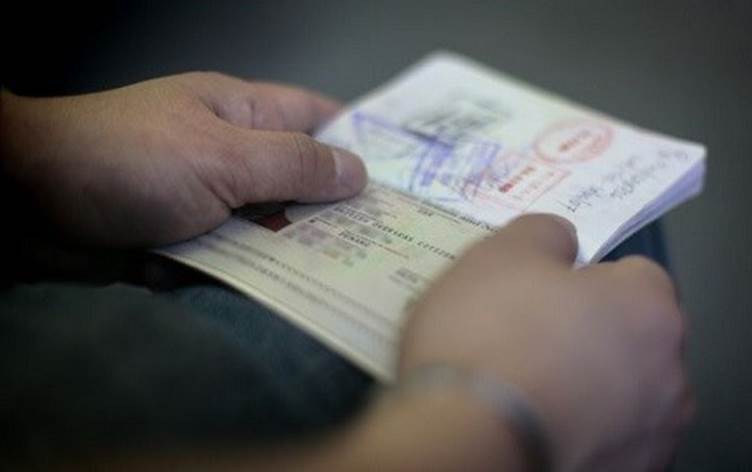Over the last decade of building better bilateral relations with the Kurdistan Region, British MPs have regularly heard about the vexing issue of visa applications.
Obstacles to visas have long been a problem for those who seek them; the issue is not well known by those who don’t. That could be changing. The Observer newspaper recently ran a detailed and devastating critique from the All-Party Parliamentary Group (APPG) on Africa that accused the Home Office of institutional racism and damaging British research projects through increasingly arbitrary and “insulting” visa refusals for academics.
These criticisms closely echo what I have seen over many years. In a nutshell, many people are refused for no good reason, often in an insulting manner, and on meagre evidence. All this is doing great damage to bilateral relations between the Kurdistan Region and the UK.
I heard of one instance where somebody was denied a visa because of a difference in stated monthly income from their original application. The entry clearance officer applied the exchange rate a little later on, and calculated a different sum. It should have been obvious that this was because of an adjusted exchange rate, but it seems that they are using a ‘computer says no’ approach that makes visa denial the default position. By September 2015, refusal rates had soared to 66 percent, and I am sure they have continued to climb.
The MPs who initiated this report are absolutely on the money in saying that the visa system is, firstly, not fit for purpose, but also, that public outrage is needed to reform it. They have done a great service in advancing reforms by exposing the systemic flaws in the system.
The challenge is putting together a comprehensive picture of such flaws. As each application is different, it is difficult to distinguish between faulty applications and failed processes.
It would be very useful if people could briefly write to me at the email address below with their experiences, so I can compile a dossier that can be used to advance reform. Along with various trade bodies, we are urging a return to diplomatic and ministerial discretion and the funding of a post that conducts interviews, so that minor issues can be more easily resolved.
There may now be a window whereby decision-makers are more open to embracing such reforms, as our impending exit from the EU will require new trade relations and a visa system fit for purpose.
Strong evidence could help persuade new ministers in the upcoming government – once Theresa May is replaced as prime minister – to back reforms that combine decency and self-interest.
The exact position for Kurds is that the Consulate-General in Erbil does not issue visas, all applicants from Iraq must apply online and their applications are then processed by the British Embassy in Amman. Applications are considered against the UK’s Immigration Rules. These are set by the British Parliament; the Consulate-General has no discretion over how they are applied. If an applicant qualifies under the Immigration Rules, their application will be accepted. If they do not qualify their application will be refused.
The British Government has appointed a Visa Application Centre (VAC) in Erbil to support visa applicants. It offers Added Value Services to applicants to help them through the process. The Services include the option to have the application form and supporting documents checked prior to sending them to the British Embassy in Amman and to help to complete the online visa application form. The VAC is in the Cristal Hotel, 100 Metre Street, Badawa, Erbil.
I have lost count of how many times people have said they were refused visas, despite having been invited to the UK by respectable British bodies. In one case, they had been invited by the Border Agency itself, which supervises visa applications. (The Border Agency is under the control of the Home Office and has since been renamed UK Visas and Immigration (UKVI)).
Obstacles to visas have long been a problem for those who seek them; the issue is not well known by those who don’t. That could be changing. The Observer newspaper recently ran a detailed and devastating critique from the All-Party Parliamentary Group (APPG) on Africa that accused the Home Office of institutional racism and damaging British research projects through increasingly arbitrary and “insulting” visa refusals for academics.
These criticisms closely echo what I have seen over many years. In a nutshell, many people are refused for no good reason, often in an insulting manner, and on meagre evidence. All this is doing great damage to bilateral relations between the Kurdistan Region and the UK.
I heard of one instance where somebody was denied a visa because of a difference in stated monthly income from their original application. The entry clearance officer applied the exchange rate a little later on, and calculated a different sum. It should have been obvious that this was because of an adjusted exchange rate, but it seems that they are using a ‘computer says no’ approach that makes visa denial the default position. By September 2015, refusal rates had soared to 66 percent, and I am sure they have continued to climb.
The MPs who initiated this report are absolutely on the money in saying that the visa system is, firstly, not fit for purpose, but also, that public outrage is needed to reform it. They have done a great service in advancing reforms by exposing the systemic flaws in the system.
The challenge is putting together a comprehensive picture of such flaws. As each application is different, it is difficult to distinguish between faulty applications and failed processes.
It would be very useful if people could briefly write to me at the email address below with their experiences, so I can compile a dossier that can be used to advance reform. Along with various trade bodies, we are urging a return to diplomatic and ministerial discretion and the funding of a post that conducts interviews, so that minor issues can be more easily resolved.
There may now be a window whereby decision-makers are more open to embracing such reforms, as our impending exit from the EU will require new trade relations and a visa system fit for purpose.
Strong evidence could help persuade new ministers in the upcoming government – once Theresa May is replaced as prime minister – to back reforms that combine decency and self-interest.
The exact position for Kurds is that the Consulate-General in Erbil does not issue visas, all applicants from Iraq must apply online and their applications are then processed by the British Embassy in Amman. Applications are considered against the UK’s Immigration Rules. These are set by the British Parliament; the Consulate-General has no discretion over how they are applied. If an applicant qualifies under the Immigration Rules, their application will be accepted. If they do not qualify their application will be refused.
The British Government has appointed a Visa Application Centre (VAC) in Erbil to support visa applicants. It offers Added Value Services to applicants to help them through the process. The Services include the option to have the application form and supporting documents checked prior to sending them to the British Embassy in Amman and to help to complete the online visa application form. The VAC is in the Cristal Hotel, 100 Metre Street, Badawa, Erbil.
|
Gary Kent is the Secretary of the All Party Parliamentary Group (APPG) and a Fellow of Soran University. He writes this column for Rudaw in a personal capacity. The address for the all-party group is appgkurdistan@gmail.com.
|





Comments
Rudaw moderates all comments submitted on our website. We welcome comments which are relevant to the article and encourage further discussion about the issues that matter to you. We also welcome constructive criticism about Rudaw.
To be approved for publication, however, your comments must meet our community guidelines.
We will not tolerate the following: profanity, threats, personal attacks, vulgarity, abuse (such as sexism, racism, homophobia or xenophobia), or commercial or personal promotion.
Comments that do not meet our guidelines will be rejected. Comments are not edited – they are either approved or rejected.
Post a comment